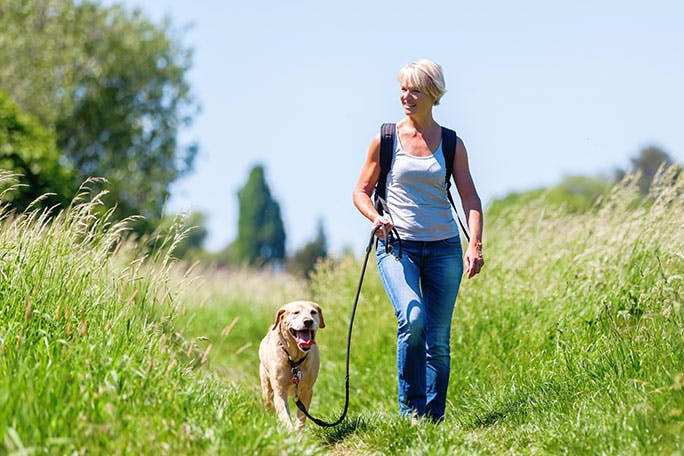Bone Health and Osteoporosis

If you’re worried about your bone health, you’re not alone. Over 10 million people in the U.S. over 50 years old have osteoporosis while another 43.3 million people have low bone mass.[1]
Luckily, although some factors are beyond your control, there are ways to build strong bones and help prevent low bone density. Continue reading to learn about supplements for osteoporosis and bone health support.
What Is Osteoporosis?
Osteoporosis is a disease that causes bones to be weak and brittle, allowing them to break easily.[2] Bones in your hip, spine, and wrist are most commonly at risk for osteoporosis-related breaks.[3] Although you might not notice until a bone breaks, osteoporosis weakens bones over many years.[2]
The bones in your body are constantly changing as new bone is made and old bone breaks down. Younger people’s bone mass increases as their body makes new bone faster than the old bone breaks down. However, once your body reaches peak bone mass—typically around age 30—you lose slightly more bone mass than you gain.[3]
Osteoporosis occurs based on how much bone mass you have when your body reaches peak bone mass.[3] The higher your bone mass, the stronger your bones are and the less likely you are to develop osteoporosis as you age. Taking action to maintain bone health while you’re young can have significant benefits as you continue to age.
Who Is Affected by Osteoporosis?
Osteoporosis can affect any person at any age, but it’s most common among older people.[2] Older women are often more at risk for osteoporosis than men, but men can also be affected by this disease.[2]
Beyond age, there are a number of other factors that can increase the likelihood that you will develop osteoporosis. Although many of these factors are out of your control, such as family history of osteoporosis, early menopause, or a smaller body frame, there are plenty of things you can do to lower your risk of osteoporosis.[2]
Osteoporosis is considered an “invisible disease” because people often don’t know they have it until they suffer from a broken bone. Bones that break much more easily than expected is the most common sign of osteoporosis.[3] If you’re concerned about your bone health, talk to your healthcare provider about your chance of getting osteoporosis.
How to Decrease Your Chance of Developing Osteoporosis
Although some risk factors of osteoporosis cannot be changed, there are many steps you can take to help support bone health. Lifestyle changes, vitamin-rich diets, and bone health supplements can help support greater bone density.
Healthy Lifestyle
Maintaining a healthy, active lifestyle can help lower your risk of osteoporosis.
- Exercise. Make physical activity an important part of your daily routine. Weight-bearing exercises, such as walking, running, and skipping rope, can help you build strong bones and slow bone loss.[3]
- Avoid alcohol and cigarettes. Smoking and drinking excessive alcohol can contribute to weakened bones. Limiting or stopping these habits completely can help prevent osteoporosis.[3]
Diet
Eating a healthy and vitamin-rich diet is recommended if you are concerned about developing osteoporosis. Include foods rich in these nutrients on your next trip to the grocery store:
- Calcium.Leafy green vegetables, dried fruit, tofu, and yogurt are all great sources of calcium. Calcium is important for maintaining bone health. Adults should aim to get 1,000 milligrams a day.[3]
- Vitamin D. In order to absorb calcium, your body also needs to get enough vitamin D.[3] Red meat, eggs, and oily fish like salmon, sardines, herring, and mackerel are great sources of vitamin D. Also, the body can make vitamin D when your skin is exposed to sunlight. Adults should get 600 to 800 IU of vitamin D each day.[3]
Supplements
Although healthy lifestyle habits and diet are important, some people might find it difficult to get enough calcium and vitamin D from their daily diet. If you live in an area with limited sun exposure, you might also need additional vitamin D. People who are lactose intolerant might find it difficult to get enough calcium through their diet alone.
When searching for a supplement to help maintain strong bones, look for one with nutrients and minerals that support bone density like vitamin D and calcium. Centrum Movement & Strength Capsule contains 100% of the daily value of vitamin D, as well as vitamin C which supports collagen formation for healthy tendons, ligaments, and bones*[4]. If you’re concerned about your calcium intake, check out Centrum Silver Women, which has vitamin D, calcium and other minerals to support bone health.
If you’re unsure which Centrum product to choose, take the Choose Your Centrum quiz to find out which supplement is best for you.
Although osteoporosis might seem alarming, the good news is there are plenty of ways to support your overall bone health. Staying active, eating a healthy diet, and taking the right supplements can all help you reduce your risk of osteoporosis.
**This statement has not been evaluated by the Food and Drug Administration. This product is not intended to diagnose, treat, cure, or prevent any disease.










